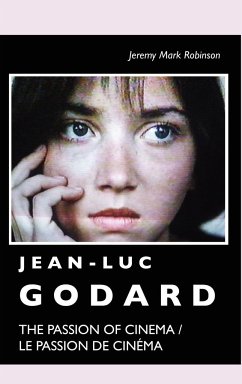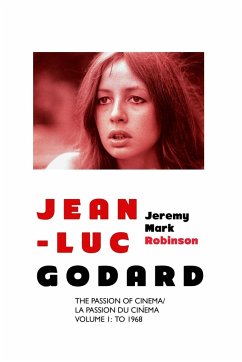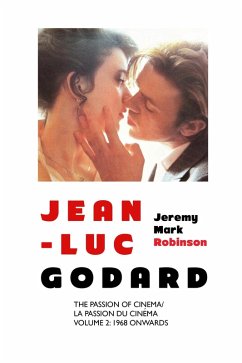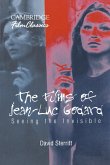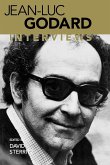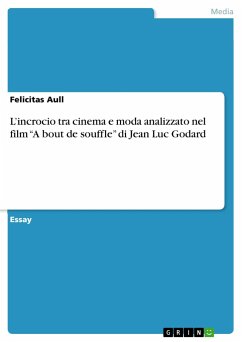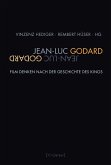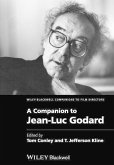JEAN-LUC GODARD There¿s no one else quite like Jean-Luc Godard. You could take a few frames from one of his films and know they were by the maestro and nobody else. Where the flood of movies globally now runs into many thousands, Godard¿s works stand out as original, acerbic, romantic, ironic, humorous and explorative. EXTRACT FROM CHAPTER 2: ¿GODARD BIOGRAPHY¿ With À Bout du Souffle, Godard produced one of the first, great French New Wave movies, starring Jean-Paul Belmondo and Jean Seberg, and written by, among others, François Truffaut. À Bout du Souffle, with its cool Parisian milieu, its filmic and film noir allusions, handheld camera, direct sound, startling editing and stylish, self-conscious performances from Belmondo and Seberg, established Godard as one of the major voices of postwar cinema, a reputation which Godard built on in subsequent early films such as Le Petit Soldat (1960), Une Femme Est Une Femme (1961), Vivre Sa Vie (1962), Le Mépris (1963), Bande à Part (1964), and Une Femme Mariée (1964). In these films of the early to mid-1960s, Godard established a radical, polemical series of films as film-essays which confronted issues such as late consumer capitalism, prostitution, labour, politics, ideology, gender, marriage, music, popular culture, Hollywood and not forgetting cinema itself. In the mid-1960s, Godard¿s films became increasingly political - the sci-fi film Alphaville (1965), Pierrot le Fou (1965), Made in U.S.A (1966), Masculine/ Féminin (1966), 2 ou 3 Choses Que Je Sais (1966) ¿ until, by 1967-68, the Marxist and Maoist influences permeated Godard¿s films: Weekend (1967), La Chinoise (1967), La Gai Savoir (1968), and One Plus One (Sympathy For the Devil, 1968). His concern was ¿not to make political films, but to make films politically¿ (my emphasis). In the 1970s, Godard moved into video and television territory, and worked with Anne-Marie Miéville on many projects: Ici Et Ailleurs (1974), Numéro Deux (1975), Comment Ça Va (1976), Six Fois Deux/ Sur Et Sous La Communication (1976), and France/ Tour/ Détour/ Deux/ Enfants (1977-78). In the late 1970s, Godard made a ¿return¿ to feature filmmaking, with the ¿sublime trilogy¿, Sauve Qui Peut (a.k.a. Every Man For Himself and Slow Motion, 1979), Passion (1982), and Prénom: Carmen (1983). Easily his most controversial film, Je Vous Salue Marie (Hail Mary), appeared in 1985; it was followed by Détective (1985), made to help finance the completion of Hail Mary, King Lear (1987), which starred Peter Sellars, Burgess Meredith, Molly Ringwald, Norman Mailer and Woody Allen, Nouvelle Vague (1990), Hélas Pour Moi (1993), For Ever Mozart (1997), Éloge de l¿Amour (In Praise of Love, 2000) and Notre Musique (2005). Fully illustrated. Bibliography and notes.
Hinweis: Dieser Artikel kann nur an eine deutsche Lieferadresse ausgeliefert werden.
Hinweis: Dieser Artikel kann nur an eine deutsche Lieferadresse ausgeliefert werden.

